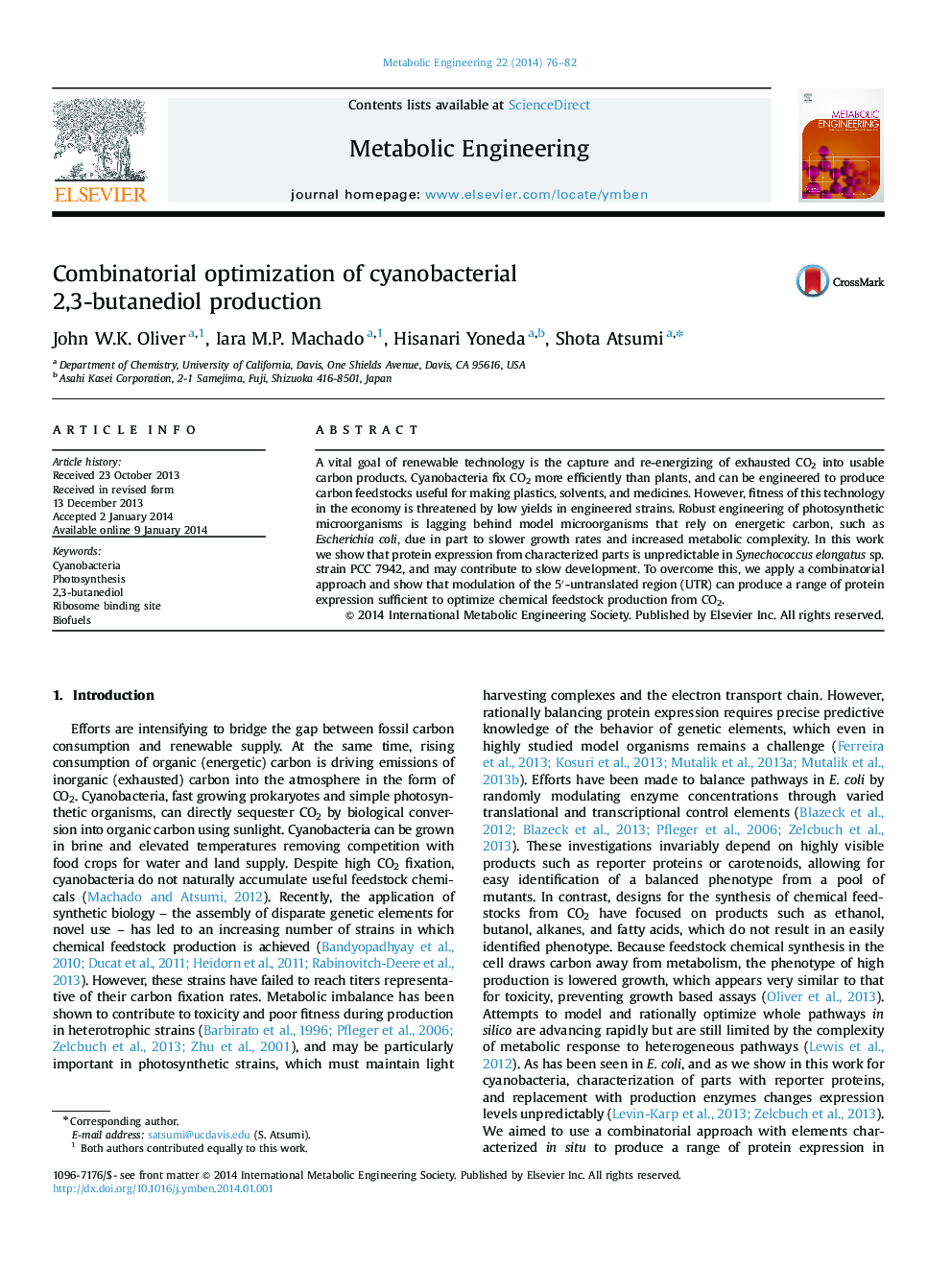| Article ID | Journal | Published Year | Pages | File Type |
|---|---|---|---|---|
| 6494626 | Metabolic Engineering | 2014 | 7 Pages |
Abstract
A vital goal of renewable technology is the capture and re-energizing of exhausted CO2 into usable carbon products. Cyanobacteria fix CO2 more efficiently than plants, and can be engineered to produce carbon feedstocks useful for making plastics, solvents, and medicines. However, fitness of this technology in the economy is threatened by low yields in engineered strains. Robust engineering of photosynthetic microorganisms is lagging behind model microorganisms that rely on energetic carbon, such as Escherichia coli, due in part to slower growth rates and increased metabolic complexity. In this work we show that protein expression from characterized parts is unpredictable in Synechococcus elongatus sp. strain PCC 7942, and may contribute to slow development. To overcome this, we apply a combinatorial approach and show that modulation of the 5'-untranslated region (UTR) can produce a range of protein expression sufficient to optimize chemical feedstock production from CO2.
Related Topics
Physical Sciences and Engineering
Chemical Engineering
Bioengineering
Authors
John W.K. Oliver, Iara M.P. Machado, Hisanari Yoneda, Shota Atsumi,
